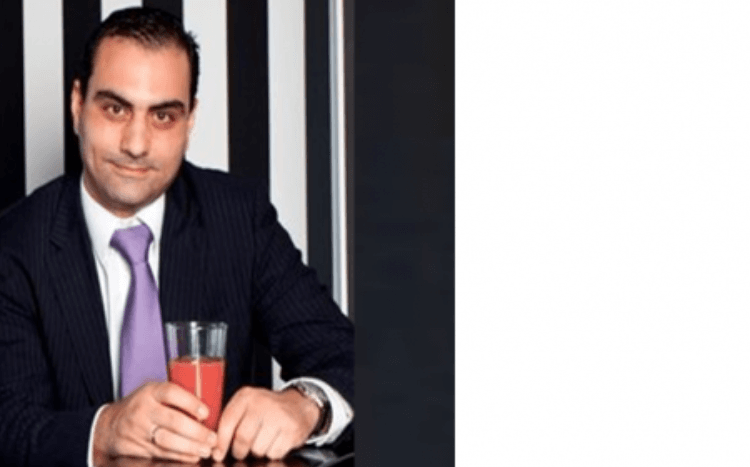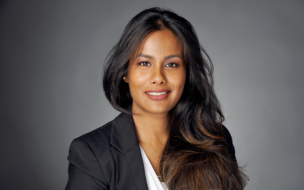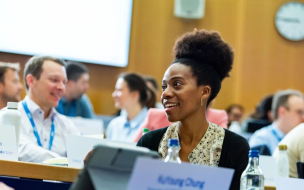We caught up with Andreas Ioannides to find out how the Manchester Global MBA is helping his a career as a senior executive at SPI Group, the global drinks company best known as distributor of Stolichnaya Vodka!
Andreas, who has been with the company for ten years, manages the group’s African, Mediterranean, India and Middle East markets. He spends on average 200 days a year traveling around the region and previously looked after SPI’s Asia and European businesses as regional director.
He gained his Bachelors degree in Business Administration and a Masters in Project Management from the University of Sunderland. In 2011 he added Manchester Business School’s Global MBA to his busy schedule.
The Manchester Global MBA is a part-time MBA for global executives with at least four years of work experience. It is completed in three to five years, and it is delivered in Manchester Business School's centres in Manchester, Dubai, Singapore, Hong Kong, Shanghai, Miami and Sao Paulo.
Read on to learn more about the life of a top executive and find out his top tips for growing your career!
How did you start working for SPI Group?
I started ten years ago as a regional director for Asia Pacific. I worked there for three years, and then looked after Europe. I’m now taking responsibility for the Mediterranean, Middle East, the Indian subcontinent and Africa.
Can you tell us some of the unique things about your job?
I’ve spent nearly half of my career travelling! I worked out that I've spent over half of the last year on planes. I call Cyprus home and have a house there but when I was working in Asia I was living out of my suitcase. I travelled between Singapore and Hong Kong frequently. As European regional director, I was all over Europe on weekdays and then home on the weekends.
What have been the definitive moments of your career?
When I joined the company, I was a young executive who was trying to learn as much as possible about the business. I was thirsty for knowledge. I worked hard in my first role (I still am!) and I was quickly moved to a bigger challenge within three years. Europe was a much larger place to do business but I dare say it was easier than Asia mainly in terms of business ethics and etiquette, andbecause of the short travel times. Having said that, of course the spirits industry in Europe is not the same after the economic crisis.
A key moment for me in the company was back in 2008, when a company who was our global distributor decided to buy a competing brand. We had to go to 150 countries to change distributors. I personally had to travel to 30 countries to look for the right distributors and take a leading role in the distribution transition. As a highlight, I took over the Middle East and Africa region.
I’m very excited to be working in this region having gained experience on two continents already, particularly because this region is where the growth will come in the following years together with Latin America.
I’m surprised that the Middle East is doing so well
Yes, the Middle East and the African region are very big markets for us and growing rapidly. A number of our competitors consider India one of their biggest markets after the USA. And this region keeps growing!
What is your favourite SPI drink?
The ultra-luxury vodka, “elit by Stolichnaya”. I drink it only on the rocks. That’s how I like my vodka.
What are some of the things you’ve learned from doing business on different continents?
Business ethics are of primary importance. You have to learn how things are done in each place. For instance doing business with the Japanese is very different from doing business with say the British or Lebanese. Little things like how you say hello, or present yourself matter a lot.
In Japan it’s all about the seniority and giving respect. Things are not as a straight-forward as they seem. Even if you’ve had a meeting that seemed to go very well, never rejoice about the deal until you see the signed contracts.
I have to say that I’m still in contact with most of my old Japanese distributors. I was also surprised and honored when I received a wedding present from Japan.
Can you describe your current role?
I’m responsible for approximately 40 countries in the region. I look after the commercial aspect of the business. This means managing the P&L of our product portfolio in each distributor, the marketing spending and sales performance to name a few.
Do you wish you had done an MBA earlier in your career?
I think this was the perfect time for me. Having gained 10 years of experience in SPI, I felt it was the right moment to benefit from an MBA. There were things I wanted to learn and I felt I could do much better. My colleagues encouraged me to get an MBA as well. I work with people who have been educated from the best business schools in the world and speak about seven languages each. They really inspired me to do it and I have had no regrets.
The only issue I have is time. I have to spend all my weekends studying and when I’m on the plane I take my books with me. The high point for me is that since I will now spend a lot of time in the Middle East, I moved my base for the Global MBA from Manchester to Dubai. So, I’ll be going there for the next two workshops in March and September.
Do you ever relax?
I only relax when I sleep!
Who are you colleagues on the MBA?
There are colleagues who are top directors. Some of them have been educated at places like Harvard and INSEAD and each of them has something important about their experiences that I can learn from. This is something I’m really excited about.
What are your favorite lectures or courses?
They have to be the most difficult ones! I like to push myself to the limit to learn as much as possible so I’ve been really excited about the financial side of things. I’ve enjoyed all the financial modules. I have also learned new things from managerial economics, accounting and corporate finance.
What is the biggest mistake you made on the job? How did you recover from it?
There have been a number of mistakes but the important thing was to focus on the solution and to learn from the experience. I always take the advice of my management, who always tell me to never give up.
Tell us a key lesson or principle that you’ve held on to throughout your career?
The key values are tenacity, entrepreneurship and excellence in whatever I do. Fun is also very important. At the end of the day, if you don’t enjoy what you do, you are doomed to fail. On the same topic if you don’t act fast you might lose the opportunity.
Scuba diving and Fishing are listed as some of your hobbies. How often do you go these days? How important is it to make breaks for yourself?
Unfortunately I don’t do them as much anymore and that is something I regret. The more you grow up, the more responsibilities you have and it hasn’t been easy to follow my favorite hobbies. I still try to go scuba diving or at least free diving once or twice a year. But, right now it's time to finish the MBA then see how to manage my life again.
How do you expect the MBA to help you become a better executive?
I think the MBA itself gives more confidence to everyone. Even though I consider myself to be a confident person, I’m getting new skills and an understanding of a number of new management concepts. I also think the enhanced finance knowledge will give me a boost. Overall, I expect the programme to get me ready for a new managerial position which will require more strategy skills.
Read more stories about students, alumni, and programmes at Manchester Business School, here
Student Reviews
Alliance Manchester Business School
RECAPTHA :
43
8b
ea
dc







